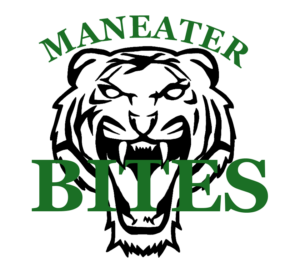September 9, 2014
The National Council on Teacher Quality is filing litigation with the Missouri Supreme Court against the UM System to gain access to course syllabi.
Arthur McKee, NCTQ managing director of preparation study, said the council wants to acquire the syllabi for its Teacher Prep Review. The study’s goal is to gather data on how education programs are teaching students, and to make sure essential teaching techniques are used by professors.
McKee said the research is gathering information from 1,127 institutions. MU and the Minnesota State Colleges and Universities system are the only two that refused to give out the syllabi.
The council requested the material in October 2012, and lost an appeal case to a panel of judges on Aug. 26.
The council’s suit against the UM System rests on the premises of the Missouri Sunshine Law, which opens all government records to the public.
“These syllabi are public documents, or at least we think that they are public documents,” McKee said. “We know that they are copyrighted. We believe that for the purpose that we are using the syllabi for, it goes under the Sunshine Law.”
The study is also focusing on assisting K-12 school districts in selecting recent graduates as new hires.
“We have been getting information from (K-12) school districts that have said for years that the quality of graduates is not what they need,” McKee said. “We want to provide school districts with information about where to get the best teachers.”
McKee said the court case is not a vendetta against the UM System, but a matter of making sure that students have open information about their school and educational program.
“We are perplexed at the stance of this institution, which uses open scholarships for students,” McKee said. “We are more than happy to have open, honest debates about the research (collected from the syllabi) … (Not releasing the syllabi) seems counter-productive for an open university.”
Faculty Council chairman Craig Roberts said some members of the faculty believe the council is attempting to “muzzle” MU to get the information they want. Roberts said the syllabi is the professors’ intellectual property, which falls under the protection of copyright law.
“We don’t know much about them, (but) we do know they are a highly political organization (that) is staffed with former administrators from … Washington, D.C.,” Roberts said. “But (the NCTQ) can’t just request a syllabus from a professor and expect them to turn it over. That falls under the area of intellectual property and the faculty didn’t react well to their attempt at muzzling us.”
Roberts said even though MU is a public university, the syllabi fall under the category of closed records that should be excluded from the Sunshine Law.
“We are hired by the state, but these fall into the area of closed records and are copyright protected,” Roberts said. “That was the argument presented by (UM System President Tim Wolfe) and the General Counsel and it stuck.”
UM System spokesman John Fougere said system administrators stand by their argument that syllabi should be protected by copyright laws, and that they were pleased after the Missouri Court of Appeals ruled in favor of the system.
“In responding to the NCTQ’s request for course syllabi, we felt it was important to respect the rights of the faculty members who created the syllabi,” he said in an email. “We are glad that both courts (that reviewed) the matter have concluded that we acted lawfully.”
Economics professor Michael Podgursky said he has a different idea about what is public record versus what is closed.
“I think it’s absurd,” he said. “I’ve never seen a course syllabi copyrighted. Once more, the evidence that suggests it is a legal fiction. It is a fact that in the academic world, we routinely take syllabi from other people and use them ourselves. In terms of writing, though, if someone took my writing and copied it, that would be plagiarism (of) intellectual property.”
Podgursky said he also believes putting up copyright barriers could damage MU’s transparency.
“It’s entirely inconsistent with the idea of an open university (and) open intellectual environment … that’s not what we want,” Podgursky said. “We should share information. We shouldn’t be building up a little copyright silo around that knowledge.”
Roberts said he is confident that the syllabi will remain closed, since students are paying for the classes in which the syllabi are used.
“I believe that MU will remain firm,” he said. “These are copyrighted documents. People pay to go to these classes, and the syllabus is part of our class work. I guess (NCTQ) can enroll in the class if they would like to see these, but I don’t even believe that it is legal for them to make copies and circulate these widely.”


Comments
The Maneater has the right to remove comments that do not comply with policies surrounding hate speech.